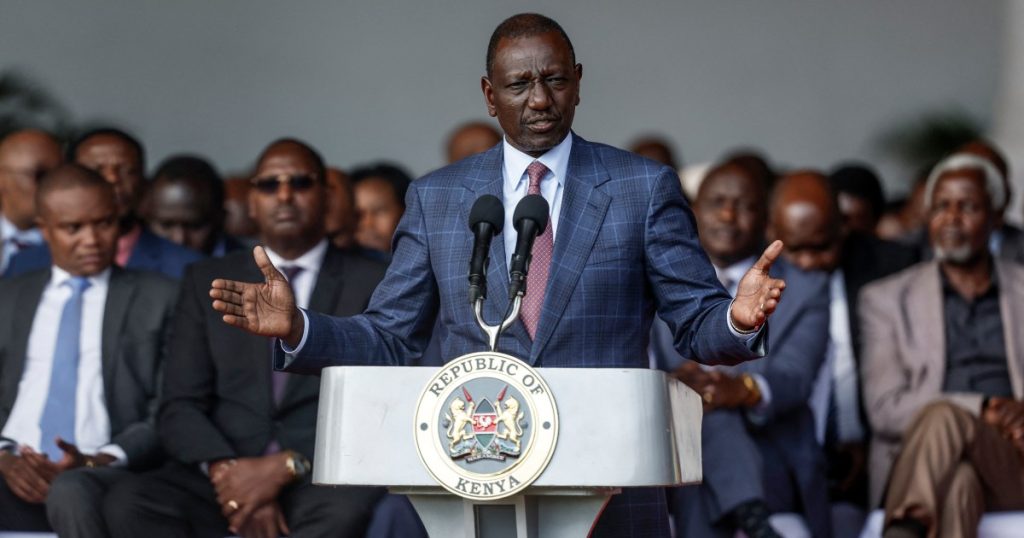Following deadly protests in Kenya over a controversial finance bill, President William Ruto is being urged to reconsider the legislation. The bill seeks to impose a 16% value-added tax on fuel in order to generate revenue for the government. However, this decision has sparked outrage among Kenyan citizens, leading to violent demonstrations in various parts of the country. Protesters argue that the tax will increase the cost of living and further exacerbate the economic hardships faced by many people in Kenya.
The protests highlight the growing frustration and anger among Kenyan citizens over the government’s economic policies and perceived lack of accountability. Many believe that the proposed tax on fuel will have a disproportionate impact on ordinary citizens who are already struggling to make ends meet. The cost of living in Kenya has been steadily rising, with inflation rates increasing and the currency depreciating. In this context, the fuel tax is seen as a burden that will only add to the financial strain faced by many Kenyans.
President Ruto’s administration has defended the finance bill as necessary for increasing government revenue and funding essential services. They argue that the tax on fuel will help reduce the budget deficit and ensure the sustainability of government expenditures. However, critics argue that the tax is regressive and will disproportionately affect the poor and middle-class citizens who rely on fuel for transportation and basic necessities. They call on President Ruto to listen to the concerns of the people and reconsider the bill in light of the widespread opposition it has generated.
The protests have turned violent in some areas, with reports of clashes between demonstrators and security forces. Several people have been killed in the unrest, further escalating tensions in the country. The violence has raised concerns about the government’s response to the protests and its commitment to protecting the rights of its citizens. Human rights organizations have called for an independent investigation into the deaths and for those responsible to be held accountable for their actions.
In the face of mounting pressure, President Ruto is facing calls to address the grievances of the protesters and find a solution that addresses their concerns. The finance bill has become a symbol of the deep-seated dissatisfaction with the government’s economic policies and the widening gap between the ruling elite and the general population. President Ruto must navigate these challenges carefully to avoid further unrest and address the legitimate grievances of the people. The stability of Kenya’s economy and political system relies on the government’s ability to respond effectively to the demands of its citizens.
In conclusion, the protests over the finance bill in Kenya have brought to light the deep-seated frustrations and anger among the population over economic inequalities and government policies. President Ruto is under pressure to reconsider the bill in light of the violent demonstrations and the widespread opposition it has generated. The government’s response to the protests will be a crucial test of its commitment to upholding the rights of its citizens and addressing their grievances. President Ruto must listen to the concerns of the people and find a solution that balances the need for government revenue with the economic hardships faced by many Kenyans. Failure to do so could lead to further unrest and instability in the country.












